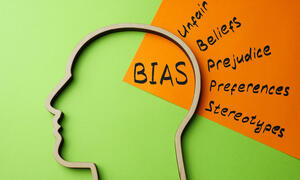Learn About and Advocate for Education and a More Inclusive Society
Do you believe in strengthening our democracy? Do you support a more inclusive society? In responding to book bans, educational censorship and attempts at excluding some communities from public school spaces, Learning for Justice’s magazine and publications offer guidance and inspiration on critical issues in education.
- Issue 5, Fall 2023
- Advocating for Teaching Honest History: What Educators Can Do
- Supporting Youth Activism


